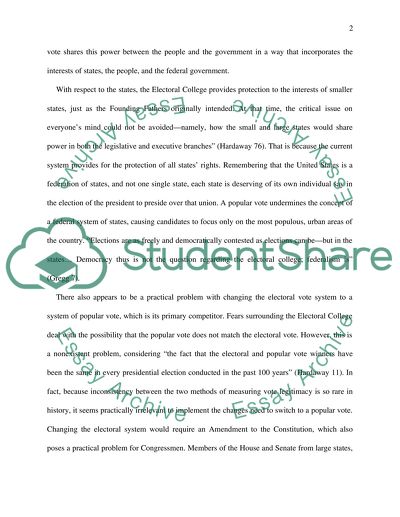Cite this document
(“Electoral College Essay Example | Topics and Well Written Essays - 1000 words”, n.d.)
Retrieved from https://studentshare.org/environmental-studies/1412977-electoral-college
Retrieved from https://studentshare.org/environmental-studies/1412977-electoral-college
(Electoral College Essay Example | Topics and Well Written Essays - 1000 Words)
https://studentshare.org/environmental-studies/1412977-electoral-college.
https://studentshare.org/environmental-studies/1412977-electoral-college.
“Electoral College Essay Example | Topics and Well Written Essays - 1000 Words”, n.d. https://studentshare.org/environmental-studies/1412977-electoral-college.


